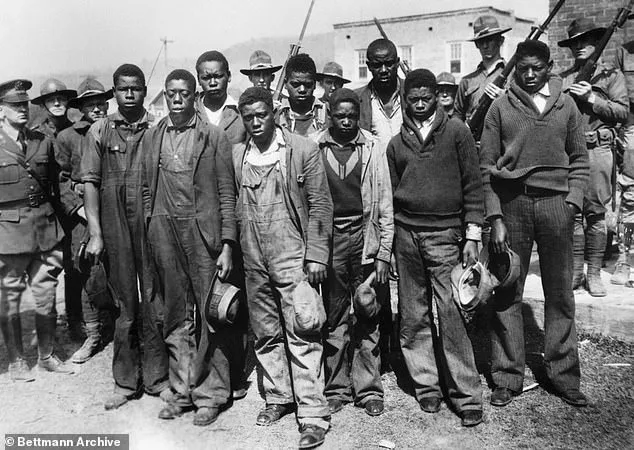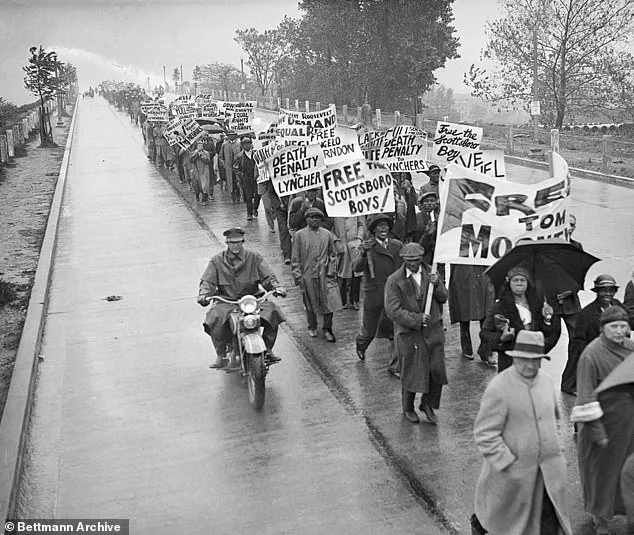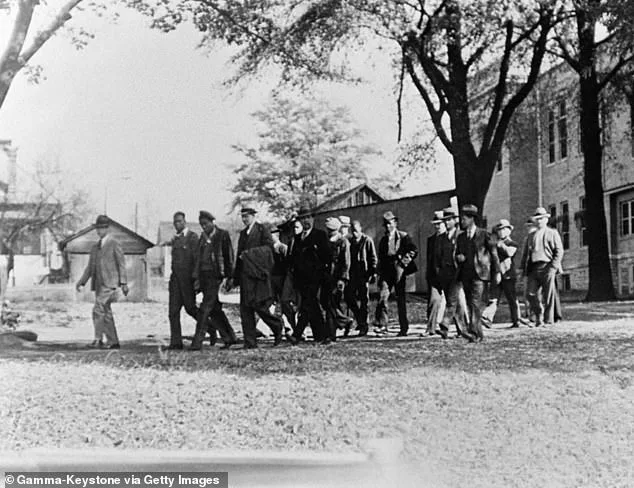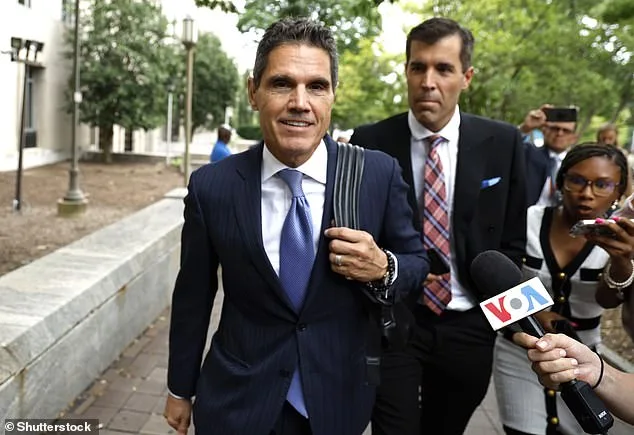How Trump’s lawyers tried to use 1931 case of black teenagers accused of raping two white women to have his D.C. trial pushed to after the election (and failed)
- Trump’s team invoked Powell v. Alabama case
- He was seeking a trial date of 2026
- Judge Chutkan said the reference didn’t apply, set date next March
Former President Donald Trump‘s lawyers invoked a notorious trial held up as a symbol of mob justice and racism to try to put off his own January 6 trial until after the 2024 election.
The federal judge who determined the calendar and set a court date the day before Super Tuesday was not impressed.
Judge Tanya Powell brought up the reference – plucked from the introduction to Trump’s own filing – as she put off the trial by just two months beyond what prosecutors sought, infuriating Trump.
The citation, Judge Chutkan noted, came from the infamous Scottsboro Boys case, where nine African American boys were accused of raping two white teens on an Alabama freight train.
They were tried just six days after indictment, and didn’t have time to select their own lawyers. They were indicted only five days after their arrest. National guardsmen had to remove them after a lynch mob formed, as the ACLU recounted. The first convictions came on the second trial day, death sentences quickly followed, in a brutal illustration of Jim Crow era justice.


The Supreme Court overturned their conviction, ruling they were denied a right to counsel in violation of their Due Process rights.
‘This trial does not move the case forward with the haste of the mob,’ Chutkan said, rejecting the analogy as she announced her decision following a spirited appearance by Trump lawyer John Lawyer. (Chutkan twice told him to take the temperature down).
Chutkan, herself a former public defender who was appointed by President Barack Obama, called Trump’s case ‘profoundly different’ for ‘any number of reasons.’
The boys were ‘met at Scottsboro by a large crowd and that the attitude of the community was one of great hostility,’ she noted.
Their trials ‘began six days after indictments,’ she intoned.


The Supreme Court found ‘a clear denial of due process because the trial court failed to give the defendants reasonable time and opportunity to secure counsel and the defendants were incapable of adequately making their own defense.’
She said Trump was being represented by ‘a team of zealous and experienced attorneys,’ and said they had been given adequate time to prepare.
And she said Trump ‘has known about the government’s investigation for nearly a year,’ which gave him the opportunity to prepare for trial. Nor was he an impoverished defendant without access to talented advocates, unlike many of the people in the criminal justice system.
Retired California Superior Court Judge Judge LaDoris Cordell called the decision to invoked the Scottsboro Boyhs case a ‘stunningly stupid thing to do,’ calling the decision and ‘absurd’ in an appearance on CNN.

‘Let’s not overlook the fact that Mr. Trump has considerable resources that every criminal defendant does not usually have,’ she said at one point.
Her comment were all a preface, delivered after a short break during a hearing Monday, where she rejected the government’s push for a January 2 trial but still showed far more sympathy to the government’s position.

While Lauro delivered a series of impassioned pleas and accused the government of selective prosecution and seeking a ‘show trial,’ prosecutor Molly Gaston tailored her remarks more to the data and noted that Trump was accused of attempting to overturn an election seeking to disenfranchise millions of Americans.
After Chutkan set a trial in the midst of the GOP presidential primaries, Trump called her a ‘Trump hater’ and once again called special counsel Jack Smith ‘deranged.’
Trump’s lawyers, Lauro and Todd Blanche, along with Gregory Singer and Filzah I. Pavalon, quoted from the Supreme Court’s decision at the top of their filing, where they also remarked on the 11.5 million of documents the government had produced to date. (It has now grown to beyond 12 million).
‘The prompt disposition of criminal cases is to be commended and encouraged. But in reaching that result a defendant, charged with a serious crime, must not be stripped of his right to have sufficient time to advise with counsel and prepare his defense. To do that is not to proceed promptly in the calm spirit of regulated justice but to go forward with the haste of the mob,’ Trump’s filing began, quoting from the 1932 decision, Powell v. State of Alabama.

